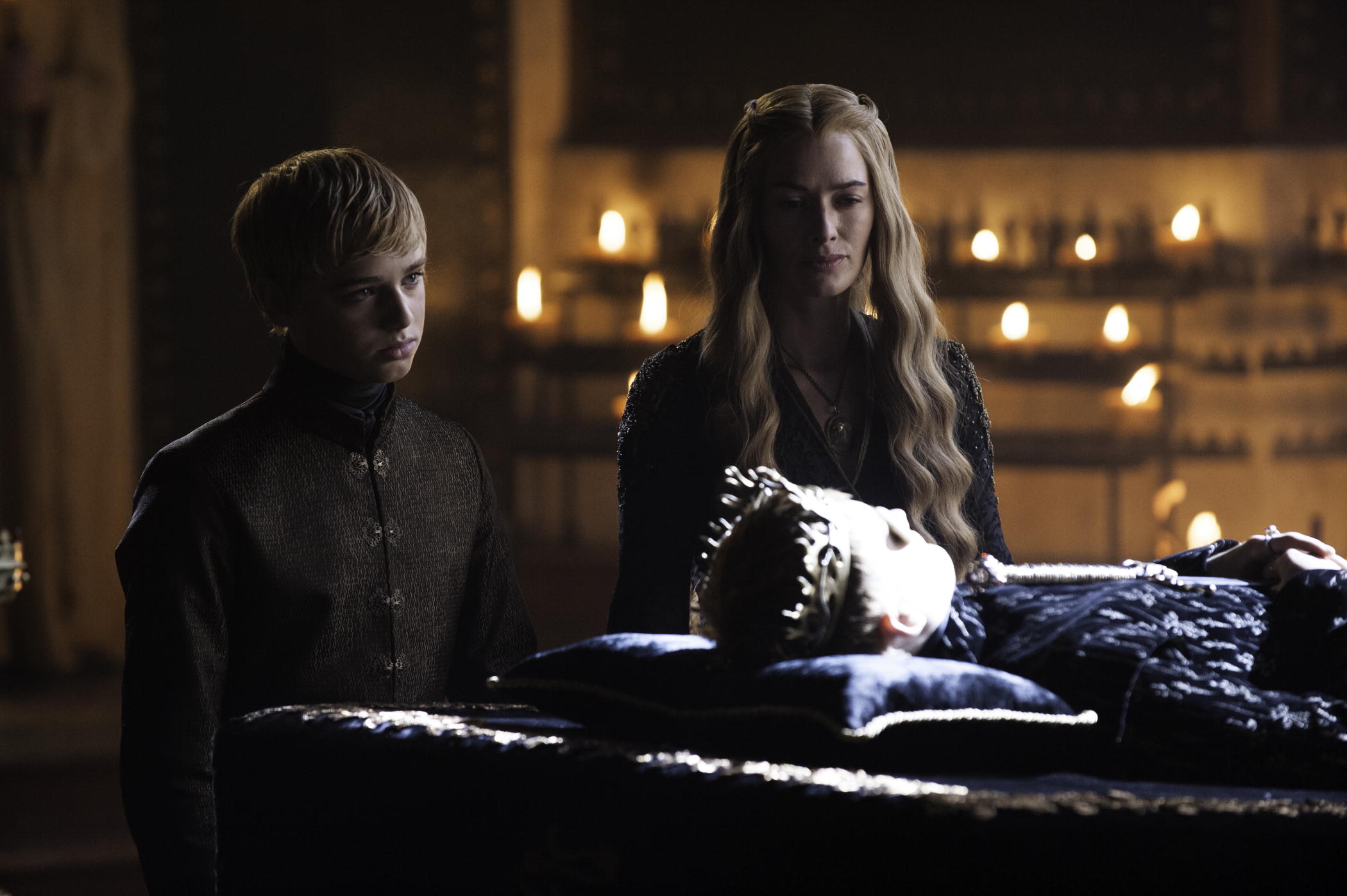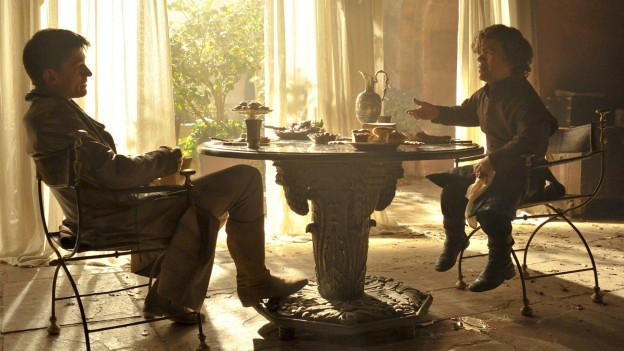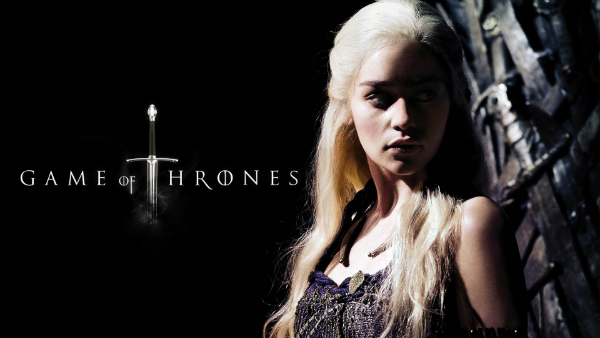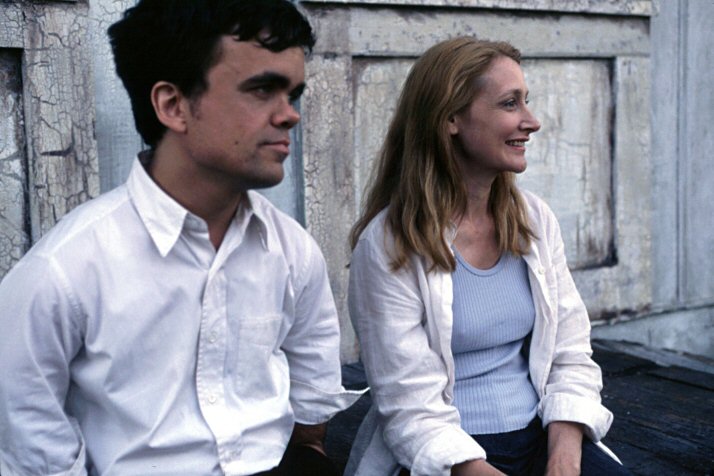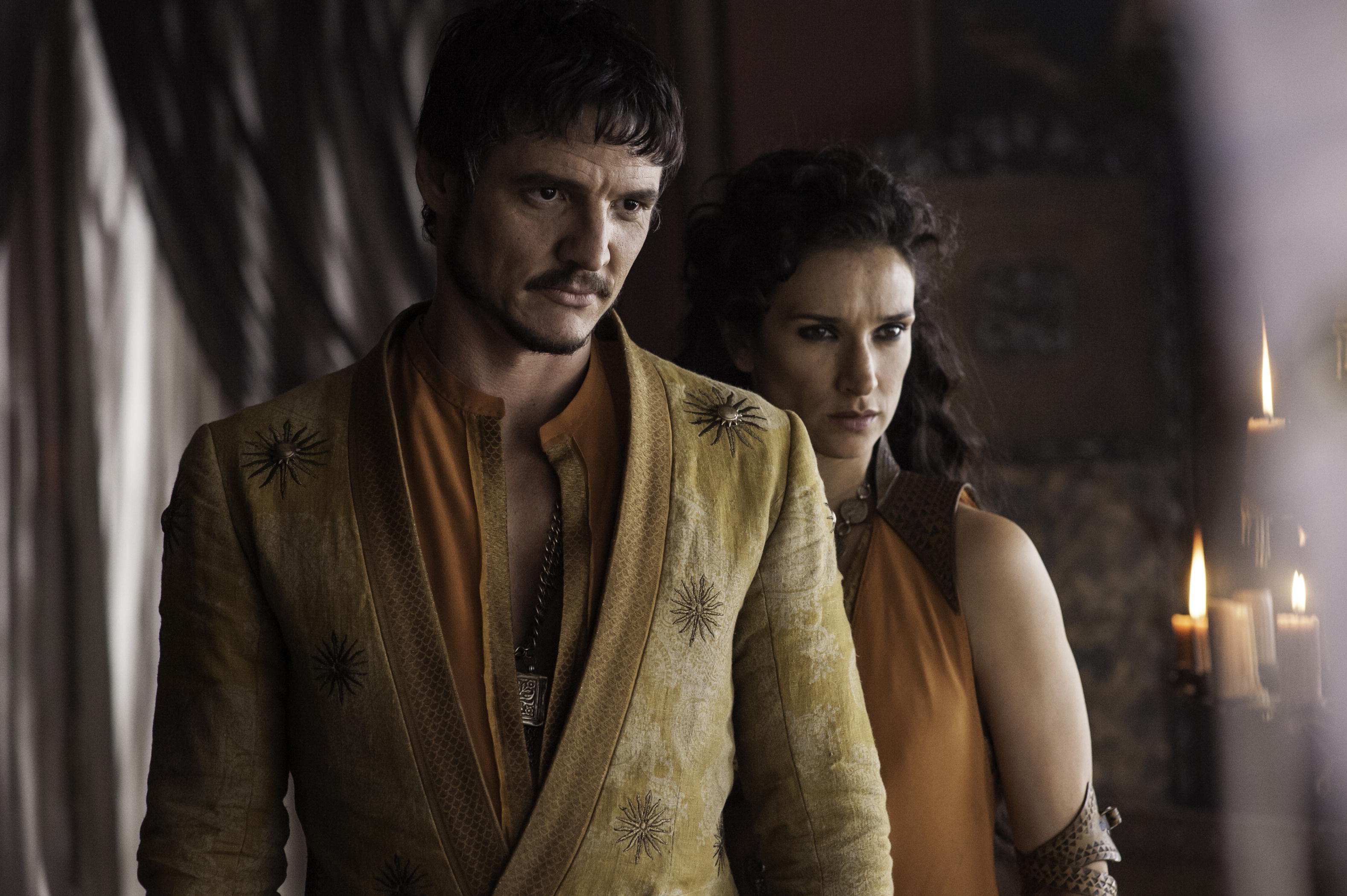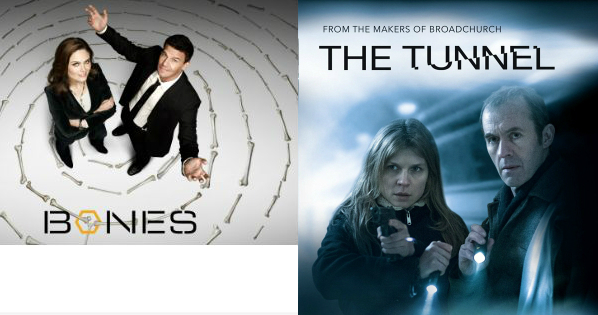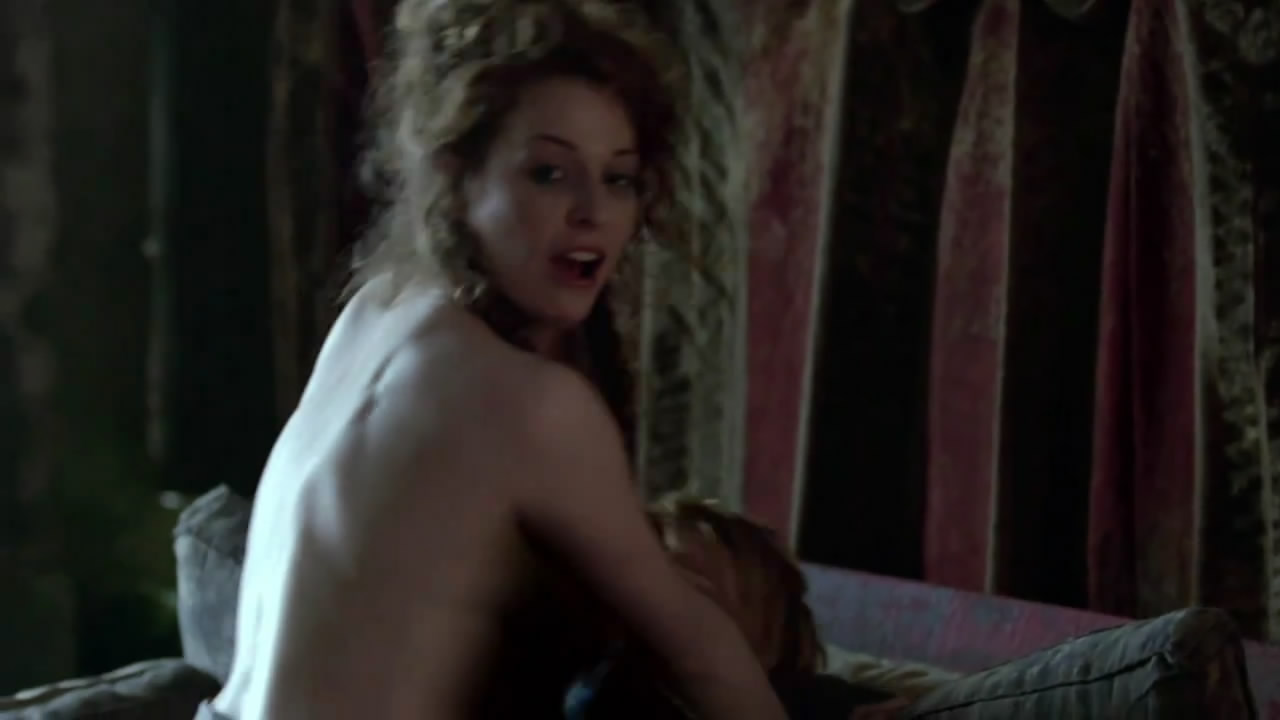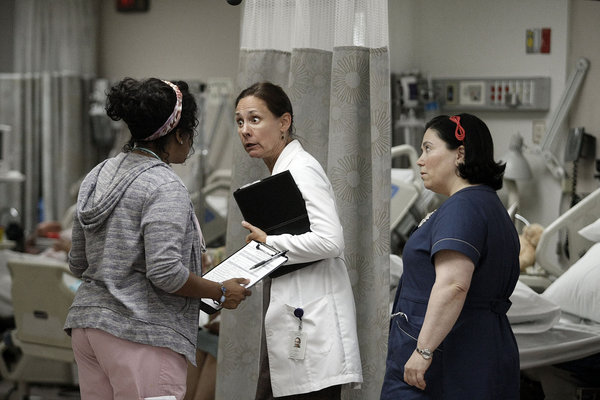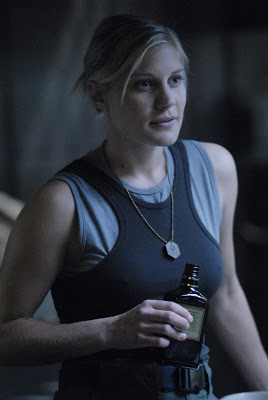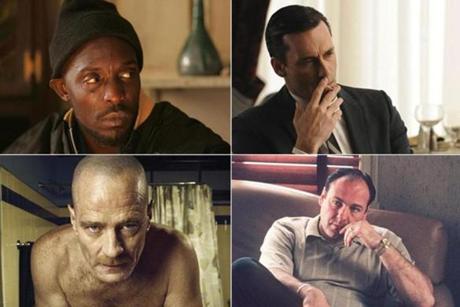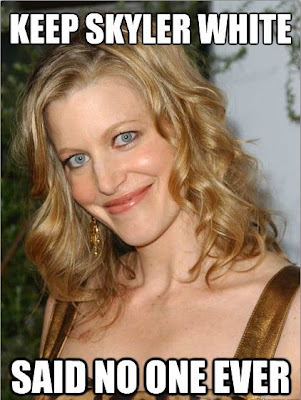Written by Rachel Redfern.

The hot button topic the past two weeks has undeniably been the intense scenes of sexual violence in Game of Thrones. Out of this controversy came a few questions for me:
- HBO is known for its gratuity, why are people suddenly so concerned now?
- What is different about these scenes that’s making people uncomfortable? Or is just the larger viewership of Game of Thrones that brings a wider range of audiences, maybe some un-used to HBO’s in-your-face nudity and violence?
- Are these scenes necessary? What role do they play in the lives of the characters and the plot?
Many were angry that Jamie’s role had been changed in his rape of Cersei since in the books it is consensual sex; in changing the scene, what were the producers trying to demonstrate with his character? Is it a reminder that despite his honorable changes, this is still the man who pushed a child out of a window? Or was it building a plot point that Jamie is a man consumed by Cersei, who now realizes that he must move on from the “love of a hateful woman”?
This past week, there was even more sexual violence at Crastor’s keep, when it is implied and shown that women are raped, and the possible raping of Meera. This entire scene doesn’t happen at all in the books, and I wondered about its plot and character purposes? Was it only there to show that Bran may now enter the minds of humans as he uses Hodor to save himself, Jojen and Meera?
And of course at the end, the killing of the rapists by the victim–always a problematic issue, but one that resurfaces frequently in discussions of sexual assault and trauma.
When we show graphic and violent images we hear the constant refrain “is it gratuitous”–in other words, what purpose is it serving? For me, the scene between Jamie and Cersei, while not true to the books, seemed true to Jamie and Cersei’s character and relationship so I felt that the scene served a purpose. However, in this last scene, I found it hard to justify the violence that was played out and the amount of violence that was implied on every level, especially since its only purpose was highlight Jon Snow as the grand and righteous (albeit pouty) hero who delivers the sweet young girl from a horrible fate and deals out retribution for his past crimes. Noticeably the last minute saving of Meera felt contrived.

I understand the concerns about utilizing sexual assault as a shock factor exploitation mechanism to amp up the viewership on an already shocking show. And HBO isn’t a perfect network with perfect directors (and neither is George R.R. Martin’s source material a perfect work of fiction).
However, I do think it interesting that so many viewers, mainstream and those who already followed HBO and cable TV, have been drawn to the show in unheard of numbers. This show, with all of its darkness and disturbing scenes, has pulled in a staunch fan base from my 17-year-old brother, my conscientious feminist friends, and even my deeply conservative father—in what can only be a tribute to the themes and the masterful storytelling that Game of Thrones is portraying. As Maureen Ryan of The Huffington Post said in an interview, “Game of Thrones possesses ‘an incredible ability to make you care about people who really have done terrible things — repeatedly, it’s done that, and I think that’s its great strength.’
With such a large committed audience, obviously we’re connecting on a incredible level to this show. But why?
Anne Rice, beloved author of Interview With A Vampire and prominent voice in the arts community, actually spoke out about the recent controversy, saying Game of Thrones is a fantasy series, and can we not explore the dark and the light boldly in our fiction and fantasies? Isn’t art the very place for such exploration? And isn’t HBO known for its boldness in this regard? I remember deeply disturbing scenes in Carnivale, and in The Sopranos. I value the daring of HBO and the daring of Game of Thrones. This from an author who is by no means shy with her own portrayals of sexuality and even created a three-part BDSM erotic novel retelling the fairytale of Sleeping Beauty.

Here’s the thing–for all of its controversy (which isn’t hurting the show’s viewership, I’m sure), people are still connecting to this show and are connecting to the terrible, senseless, often difficult situations that they have to struggle through. Game of Thrones offers us, and its characters, no clear way out of mess, no neatly tied up episode endings, hell, even the most devoted fans can only speculate on the series’ ending. This show hosts both the unknown future and the sadly familiar past of familial dysfunction and bad romantic choices.
In the end, with or without controversy, compelling stories that are acknowledging sexual assault, that recognize the deep horror in violence, seem a necessary outlet for human fantasy—both dark and light.
As George R.R. Martin stated (in regard to the recent scenes): “To omit them from a narrative centered on war and power would have been fundamentally false and dishonest,” he continued, “and would have undermined one of the themes of the books: that the true horrors of human history derive not from orcs and Dark Lords, but from ourselves.”
___________________________________________
Rachel is a traveler and teacher who spent the last few years living in Asia. Now back in her native California, she focuses on writing about media, culture, and feminism. While a big fan of campy 80s movies and eccentric sci-fi, she’s become a cable acolyte, spending most of her time watching HBO, AMC, and Showtime. For good stories about lions and bungee jumping, as well as rants about sexism and slow drivers, follow her on Twitter at @RachelRedfern2
